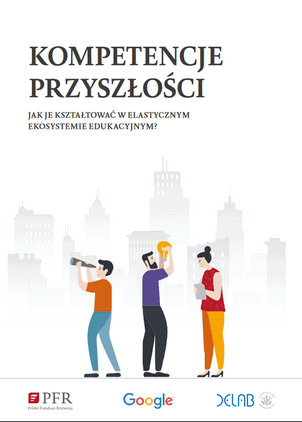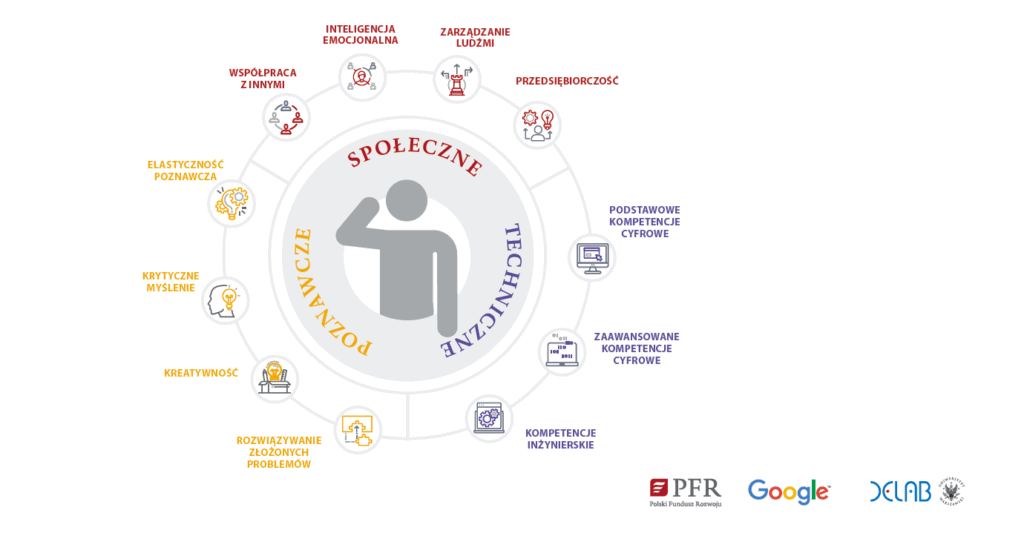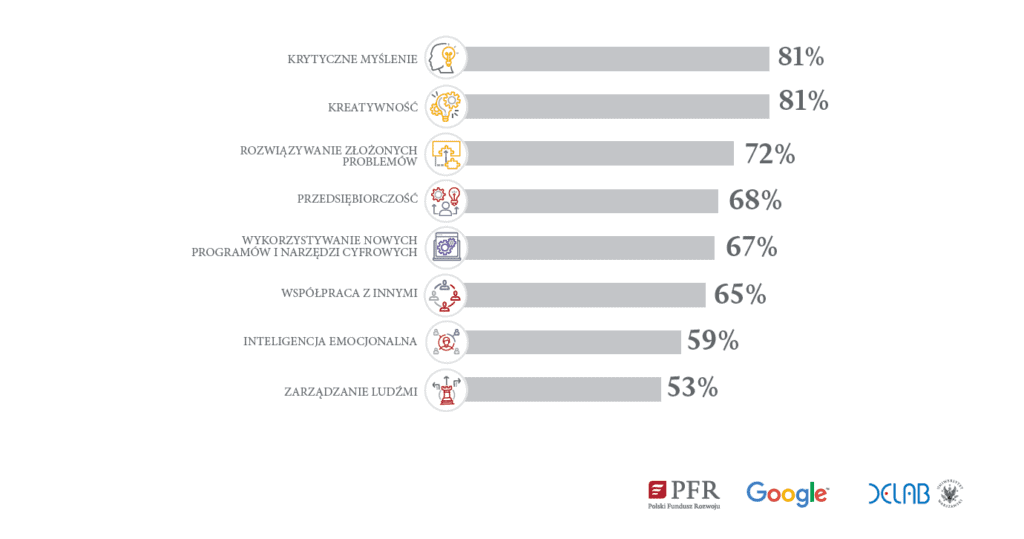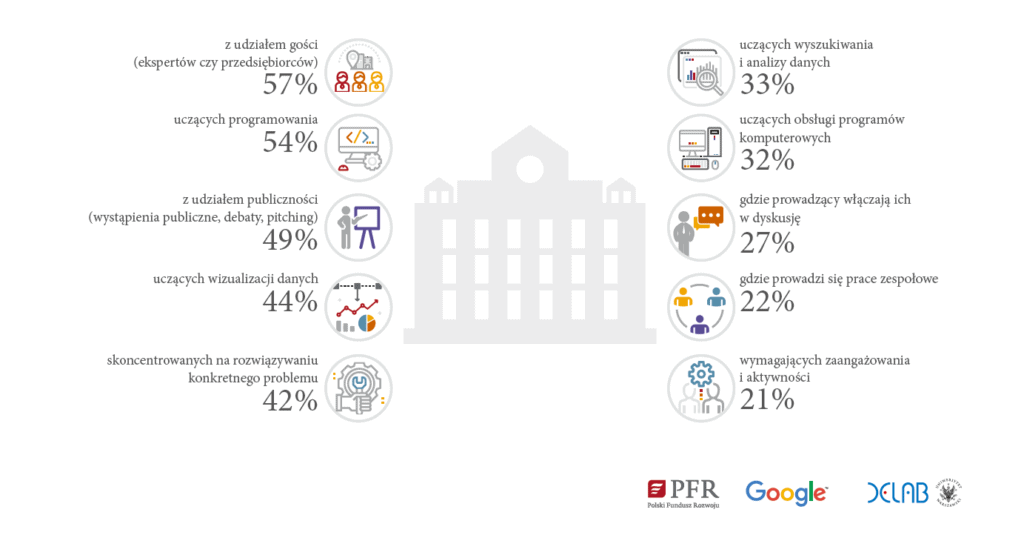Competencies of the Future
WHAT ARE THE COMPETENCIES OF THE FUTURE?
DO POLISH UNIVERSITIES TEACH SUCH THINGS?
WHAT SHOULD THE UNIVERSITY OF THE FUTURE BE LIKE?
In the conditions of digital transformation, knowledge becomes a key resource, and the key competence of people and organizations – the way and speed of its acquisition and use. On the labor market shaped by automation and platformization processes, there will find such employees who, basing on advanced cognitive, social and technical (including digital) competences, will be able to adapt their skills profile to the rapidly changing expectations of employers.
What role will universities play in the competencies of the future? What do students themselves say about their studies and what expectations do they have? This is the subject of a report by DELab UW prepared for the Polish Enterprise Fund and Google.
Share
WHAT ARE THE COMPETENCIES OF THE FUTURE?
Technical competencies – engineering and digital – will be important, but competencies that differentiate human work from robots or artificial intelligence, such as the ability to make decisions and judgments, creation and empathy, will become key. Increasingly, tasks will be hybrid in nature, combining human and machine competencies. Humans will train machines (e.g., teach artificial intelligence), and machines will amplify the potential of humans by enhancing their cognitive, communication, and physical capabilities.
DO POLISH UNIVERSITIES TEACH SUCH THINGS?
Studying broadens horizons, inspires and builds social capital. The vast majority of students and alumni we surveyed (81%) agreed with the statement that college provides intellectual growth. However, the results of the survey show that the workshop participants share the feeling that Polish universities are not the best place to develop the competencies of the future.
WHAT SHOULD THE UNIVERSITY OF THE FUTURE BE LIKE?
The university of the future is actively engaging with the broader education ecosystem. Modern developments are moving in the direction of increasing program flexibility and changing the forms of student learning: moving away from the rigid division into semesters and years of study, teaching and applying theory to practice, and more emphasis on engaging students in hands-on project work.
There has never been a better time for employees with the right skills or education, ones who can use technology to create value. And there has never been a worse time for workers with only „ordinary” skills and abilities, as computers, robots and other digital technologies gain them at an extraordinary rate.
E. Brynjolfsson, A. McAfee
Authors of the report
Cooperation
Project partners














